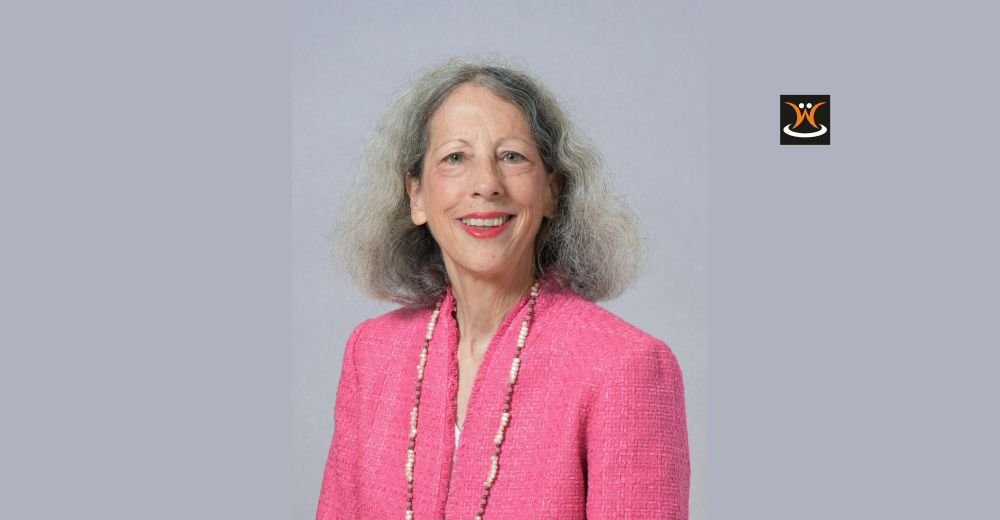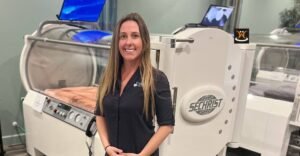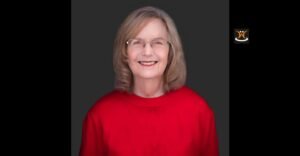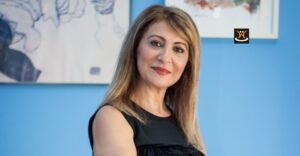Kids today grow up in a world shaped by climate change, inequality, and fast-moving technology. Schools can help them understand these challenges and figure out how to respond. Classrooms are no longer just for facts. They are where students learn to think, work with others, and take responsibility. Teachers show them how learning can be put into action.
One teacher who has done this for decades is Joan Gillman. As a science teacher, she has spent
over forty years teaching and is in her eighth year at The Browning School in New York City. She doesn’t just teach experiments or facts. She helps students see how science connects to the world, to fairness, and to the environment. Through her work with the school’s Green Team, lessons turn into real-world action, and she guides students as they learn to think carefully and care about what they do.
Joan Gillman doesn’t just teach science. She focuses on creating classrooms where every student feels valued and capable. She believes kids need to understand how the world works so they can make fair and thoughtful choices. Her long career shows how curiosity and dedication can shape the next generation.
Let’s learn from Joan Gillman how teaching can inspire curiosity, responsibility, and leadership in every student!
Discovering a Passion for Teaching
In reflecting on her earliest inspirations, Joan Gillman recalls a time when teaching was not yet a career aspiration but rather a natural extension of her desire to serve others. During high school, she was required to participate in a community service program to graduate. What could have been a simple obligation quickly transformed into a life-shaping experience.
“I decided that I would like to fulfill my obligations by volunteering in the lower school. During that time I taught elementary school children how to play recorder. I tutored small groups in math, and I organized games in their playground.”
Her efforts were noticed. The head of her school admired her inclusive approach, particularly the way she ensured every child could participate in playground games, not just the athletically inclined. Beyond school, she taught swimming at her local JCC, often working with children who had special needs, and she even stepped in as a substitute ballet teacher. She remembers vividly the pride she felt when her young swimmers overcame their fear of water and built confidence in themselves. These experiences made her realize that teaching wasn’t just something to do, but something she was meant to do.
A Lifelong Fascination with Science
Joan Gillman interest in science and engineering also took root early in life. She vividly recalls conducting makeshift experiments in her bathroom, mixing powders and liquids in search of discoveries, and being fascinated by weather phenomena. Snowfalls were occasions for careful observation, yardstick measurements of accumulation, recordings of temperature and barometric pressure, and quiet admiration of nature’s beauty. She could not have known then that these small, inquisitive acts of childhood would one day become the foundation of a career where scientific curiosity meets educational impact.
Beyond the Classroom: Shaping Minds for the Future
When asked what her role as a science teacher means to her beyond classroom instruction, Joan Gillman emphasizes the importance of ongoing professional growth and staying connected to a rapidly changing world.
“I find it vitally important to attend teacher workshops in order to keep abreast of all of the changes taking place in education. So much has changed since I started teaching 43 years ago. I am also an avid reader. You can frequently find me reading books with a science theme to help me stay up-to date with the latest scientific findings.”
Her commitment extends beyond personal development to global issues. She believes no science education is complete without directly addressing climate change. Since joining The Browning School in 2018, she has co-led the Green Team, a school-wide initiative promoting sustainability. Through this group, Joan Gillman has empowered students to explore the real-world impacts of water shortages and climate issues. One sixth-grade lesson on water scarcity deeply inspired a student, who later pursued projects around clean water access in higher grades. With Green Team support, the group researched organizations aligned with this cause and partnered with water.org, raising over $1,000 through school fundraising. This initiative was a vivid example of learning turning into action.
Tailoring Education to Every Student
Equity is a cornerstone of Joan Gillman teaching philosophy. She strongly resists the notion that a single approach to instruction can serve all learners.
“Too often, I have found that schools take a ‘one size fits all’ approach to teaching. Each child comes to class with unique needs. It is up to the teacher to find the right approach to help each student reach their academic goals.”
To achieve this, she integrates interdisciplinary approaches into her science curriculum. Whether through engineering units in second grade, where students design and build bridges and skyscrapers while celebrating their cultural backgrounds, or lessons on U.S. space program history that highlight the barriers to astronaut diversity, her students encounter science not as an isolated subject but as a field deeply connected to culture, history, and society.
This approach transforms classrooms into communities of learners. Students collaborate on projects by leveraging their unique strengths: some bring artistic talents, others excel in technology and presentations. Joan Gillman ensures that every voice contributes to the shared success, reinforcing her belief that equity thrives when individual differences are celebrated and utilized.
Making Sustainability Personal and Actionable
Global challenges like sustainability can feel overwhelming, particularly for young learners. Joan Gillman bridges this gap by grounding environmental responsibility in tangible, everyday actions. Through the Green Team, students introduce weekly initiatives such as recycling reminders, shorter showers, minimizing food waste, or choosing public transportation. These seemingly small choices reinforce the idea that sustainability begins with personal responsibility.
Further, she organizes Central Park cleanups at 7:30 AM, where students experience firsthand the impact of environmental stewardship. These moments of collective action extend classroom learning into the real world, instilling both responsibility and pride in her students.
Innovative Teaching Methods and Projects
Joan Gillman curriculum development often marries science instruction with themes of equity and sustainability. A standout example is her sixth-grade unit on “Hurricane Relief and Environmental Racism,” where students learn not only about the science of natural disasters but also the disproportionate impact such crises have on marginalized communities.
Her innovation was further recognized when she became a National Geographic Certified Educator in 2018. For her capstone project, she created a video showcasing her oil spill curriculum, designed to help students appreciate the complexities of cleaning up environmental disasters. By simulating these challenges, students gain practical insights into the realities of ecological responsibility.
Institutional Support for Inclusive Education
The culture at The Browning School has been a powerful amplifier of Joan Gillman efforts. The school’s mission emphasizes equitable practices and social impact, a commitment clearly articulated by its Chief Equitable Practices Officer: “Our learning community is enriched by the wide range of perspectives, talents, and experiences of all its members, and we are committed to cultivating an environment where every student can thrive.”
This environment has empowered Joan Gillman to lead the Green Team with full support, bringing together students from diverse backgrounds to collaborate on sustainability initiatives. The alignment between personal passion and institutional mission has allowed her work to flourish.
Defining Passionate Leadership
Asked what passionate leadership in education means today, Joan Gillman draws upon decades of experience.
“I truly believe that a leader needs to be honest, hardworking, and someone others can approach with confidence. As a teacher for over 43 years, I feel that my colleagues value my knowledge and experience. On the other hand, a good leader also needs to be a good listener and open to other people’s ideas.”
She attributes her success to three personal qualities: dedication, discipline, and creativity. Her ability to fully commit to her profession, maintain organization, and develop innovative lessons has made her both an effective teacher and a respected leader among peers. Conferences and professional gatherings have offered her opportunities to share strategies with fellow educators while also bringing fresh insights back to her classroom.
Her recognition is not limited to her school community. This year, Corwin Publishers included her climate justice curriculum in the book What Teachers Need to Know About Teaching Climate Change. The honor, she notes, stands out as a moment of pride in her career.
Facing Challenges with Resilience
Addressing equity and sustainability in education comes with unique challenges. Joan Gillman highlights one of the greatest hurdles: how to teach climate change without overwhelming students with fear.
“One of the biggest challenges facing education today is how to address climate change issues without frightening the students. Children need to understand how the world works so that they can make wise decisions as adults and help bring about positive changes to our world.”
Her strategy focuses on empowerment rather than despair. By modeling action through the Green Team and emphasizing that small steps make a big difference, she helps students see themselves as capable of creating change rather than helpless in the face of global crises.
Hopes for the Future of Education
Looking ahead, Joan Gillman envisions an education system that more fully integrates equity and sustainability across all disciplines. She plans to continue leading the Green Team while sharing her expertise at national and international conferences. She has presented at NSTA, STANYS, SCONYC, and NYSAIS Diversity Symposium, reaching fellow educators with her message of interdisciplinary, equity-driven science education.
Her recognition by the International Association of Top Professionals as “Top Educator of the Year 2025” underscores the global resonance of her work. “I truly felt humbled and honored by this selection. This has to be one of the top highlights of my career,” she reflects. For her, the award is not just an accolade but an opportunity to inspire more educators to embrace sustainability and equity in their teaching.
Guidance for Future Educators
When asked what advice she would offer to aspiring teachers hoping to become passionate leaders, Joan Gillman stresses the importance of continual growth and resilience.
“As an educator, it is vitally important to continue attending professional development opportunities. So much has changed since I began teaching 43 years ago, and I attribute my long career to continuing to embrace new techniques and ideas that I have acquired through workshops, courses, and science conferences.”
She also emphasizes humor and collaboration: maintaining a positive spirit, even in the face of challenges, and never hesitating to seek advice from colleagues. Teaching, she acknowledges, is demanding, but it remains one of the most rewarding professions.
A Career Built on Passion and Purpose
Joan Gillman journey as an educator is a story of dedication, innovation, and humanity. From teaching recorder and playground games as a high school volunteer to leading national conversations on climate justice in education, her path reflects a consistent thread: the belief that every child deserves to feel empowered and included, and that every teacher carries the responsibility of preparing students to meet global challenges.
Her work at The Browning School demonstrates what is possible when passion aligns with purpose, and when equity and sustainability are not add-ons but integral to the curriculum. Through her leadership, students not only learn science but also develop the skills, empathy, and confidence to lead in their own right.
As she continues to shape future generations, Joan Gillman remains a reminder of the profound influence a single teacher can have. In her words, “Teaching is a very challenging and exhausting career, but it is still one of the most rewarding professions you can choose. Keep up your spirits. The best days are just ahead of you.”
Celebrating Joan Gillman’s Achievements
Teaching & Leadership
- 40+ years as a teacher and in her 8th year at The Browning School.
- Guiding students in equity, sustainability, and scientific literacy
- Leader of the school’s Green Team
Awards & Honors
- Urhy Teacher of the Year – Calhoun School, 2017
- Top Educator, Lifetime Achievement & Humanitarian – Marquis Who’s Who
- Featured in: Forbes, Insights Magazine, National Digest, World’s Leaders
- Kappa Delta Pi: Legacy Member
- IAOTP “Top Educator of the Year 2025”
Publications & Curriculum
- “Straw Rockets are Out of This World” – 2013, republished 2016 in Bringing STEM to the Elementary Classroom
- Articles in STANYS Bulletin and Science and Children
- Contributions to Corwin Publishers’- “What Teachers Want to Know About Climate Change”
Impact
- Transforming classrooms into spaces where every student feels valued
- Turning lessons into real-world action
- Inspiring the next generation of leaders, thinkers, and problem-solvers




